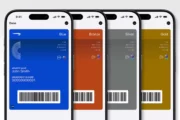-
Fraud is (I believe)
dishonestly making a false representation
… clearly, if I phone up BA and insist I have a voucher that I do not, in fact, have, and I’m successful in making a booking, that’s fraud. The value (zero) of the Avios isn’t necessarily a defence as I believe you can be guilty of fraud for obtaining a service dishonestly even if no money changes hands (or there is no financial loss). A concrete example would be pretending to be someone else, spending “their” Avios and then trying to get off a fraud/theft prosecution on the grounds that the Avios did not have value — that would not wash. You obtained advantage by deception, that’s fraud.
But is it “making a false representation” to click a button on a website next to a voucher that BA have failed to remove from an account when making a booking? Similarly, is it fraud to use Avios in an account that should never have been credited? — crediting Avios incorrectly has happened to many BA customers, and I’m sure the great majority never noticed. You are not pretending to have something that you do not — you are using something that should not be there.
I am not a lawyer but I’d say that neither booking with an incorrectly credited voucher, nor with incorrectly awarded avios, would be fraud. One is merely using a voucher/avios one should not, under the rules of the scheme, have at one’s disposal. To put it bluntly, you are not lying about anything.
For the record, I would not commit fraud regardless of any assessment on my own part of the unlikeliness of prosecution. It’s a line I would not cross. Similarly, I would not spend a “bank error in your favour” of actual cash, I believe that’s unlawful. But using vouchers and points in my account that should not be there? I do not think that’s a criminal offence.
I wouldn’t have any moral hesitation using it. In fact I used the same Ambassador voucher several times last year (until they stopped being valid at Kimpton hotels). Similarly I was more than happy to keep the avios and TPs I got for an avios booking earlier this year.
They could invest more in tech and decide not to, so not my problem…@JDB, does BA lose anything if someone skips the last leg on a redemption booking? For example, they booked MAN-LHR-SIN return on a 241 to open extra availability? The domestic connections don’t seem to incur any extra avios or £. For cash bookings, of course they do, as a non-stop flight is more expensive. The example above was about skipping a redemption leg, so is there any loss to the airline?
No, the issue is really for example on ex-EU tickets where there can be a big price differential. As has been mentioned here before, it’s a big issue in the US and Canada but much less so in Europe.
@tontoro you will find that @froggee is unsurprisingly correct; he is a clever chap. The section that you have cited is out of date. There is now the word ‘also’ added. What it has always been understood to mean and you will find confirmed in the CPS charging guidelines is that credits from those specific sources listed are de facto ‘wrongful’. As they say, a little knowledge is a dangerous thing.
OK, fair enough
I think in this case the OP knows the voucher is wrong and therefore to some extent it could be considered fraud.
I think JDB also makes the point that prosecution would be unlikely and I guess the reason for this is that it’s not blatant fraud and would be hard to prove this. A very frequent traveller could genuinely have forgotten they used their voucher… Or to other people’s points, given wrong Avios.
I recently had an Avios refund and spent five minutes working out whether it was correct as it had all sorts of transactions associated with it (contributions from household accounts, etc etc). Had that refund been wrong and they’ve given me an extra 10k Avios, I’d suggest 99% of folk would never notice but 99% would then use it. That’s can’t be fraud surely…
I think the conclusion is clear. Do what you want with it, but you know what you are doing. It’s akin to finding £20 on the floor. Do you spend it on a bottle of wine or stick it in a charity box. Only you know how you’ll feel about it.
You’re misunderstanding how criminal law works, it’s not predicated on whether something can be “considered to some extent”, it either is an offence or it isn’t. See also my post about avios having £0 value – this is an established fact, not a matter of opinion, until a court decides otherwise as had happened in respect of a different airline in Germany. So you can’t use them to commit fraud.
Pontificating on whether or not something is morally wrong will get you absolutely nowhere in criminal proceedings.
Take this from someone with 3 decades of experience of compiling prosecution files! You have to learn to separate your emotional, moral responses or you will end up broken.
You’re misunderstanding how criminal law works, it’s not predicated on whether something can be “considered to some extent”, it either is an offence or it isn’t. See also my post about avios having £0 value – this is an established fact, not a matter of opinion, until a court decides otherwise as had happened in respect of a different airline in Germany. So you can’t use them to commit fraud.
Pontificating on whether or not something is morally wrong will get you absolutely nowhere in criminal proceedings.
Take this from someone with 3 decades of experience of compiling prosecution files! You have to learn to separate your emotional, moral responses or you will end up broken.
I don’t disagree. But are we genuinely saying (let’s assume this is cash) that if my bank refunds me £2.50 from somewhere and I never notice but spend it that’s fraud? Maybe the answer is yes, by the letter of the law, in which case, fair enough. I would assume there is some level of “intent” or *knowledge” there?! But you’re the expert so happy to be corrected. We digress anyway, I assume any award availability that OP wanted is now gone anyway 🙂
You’re misunderstanding how criminal law works, it’s not predicated on whether something can be “considered to some extent”, it either is an offence or it isn’t.
Completely agree. The suggestion that this is the crime of fraud is just fanciful, IMO.
But are we genuinely saying (let’s assume this is cash) that if my bank refunds me £2.50 from somewhere and I never notice but spend it that’s fraud? Maybe the answer is yes, by the letter of the law, in which case, fair enough. I would assume there is some level of “intent” or *knowledge” there?!.
Some crimes require the prosecution to show that you knew (or believed) you were committing an offence — I think the legal jargon is mens rea. Other offences don’t require the court to be convinced you knew you were doing anything wrong. I think fraud is in the former camp.
Spending money from your bank account that isn’t yours, and that you know isn’t yours, isn’t fraud, I believe it’s theft. A different offence (again, I’m not a lawyer and happy to be corrected).
@JDB exhibiting his tendency to cognitive dissonance once again. He’ll gleefully churn out dozens of posts lecturing on the evils of even contemplating ‘illegal’ activities, yet was happy to openly boast on here about how easy it is to use unofficial[*] currency exchanges in Argentina [* in case it’s not clear, that’s a euphemism for, you guessed it, illegal]
It’s a fair cop @Scott. What’s interesting (but is no excuse) is that the illegal market is completely in the open and the economy essentially couldn’t function without it for as long as the Central Bank wishes to maintain an unrealistic official rate.
The illegal rate is published in all the papers, Google maps will tell you where to find the money changers and regulated institutions/money transfer companies participate in the market. As far as I know there hasn’t been a prosecution, although the police occasionally raid ‘cuevas’ but that’s more to do with drugs money and money laundering. Tourists are on one side of the trade and respectable richer Argentinians on the other.
The government has decided it wants to get in on the act which is why it opened up the pre-existing MEP rate to foreign card holders. That’s had the effect of them getting some more badly needed $ but also of making the blue rate even more attractive for tourists, tougher on locals.
Your first four words were sufficient, no need to try justifying your illicit behaviour to me, sir!
- You must be logged in to reply to this topic.

















